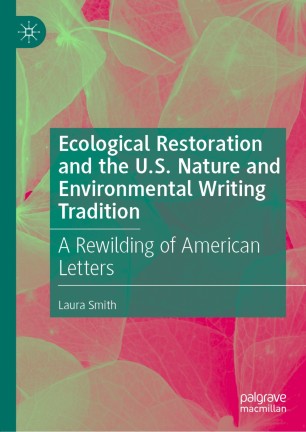In Ecological Restoration and the U.S. Nature and Environmental Writing Tradition, Laura Smith presents a critical history of the intersections between American environmental literature and ecological restoration policy and practice.

Laura Smith, Lecturer in Human Geography at University of Exeter (UK), presented her book Ecological Restoration and the U.S. Nature and Environmental Writing Tradition: A Rewilding of American Letters (Palgrave Macmillan, 2022) in the Greenhouse environmental humanities book talk series on Monday, 16 May 2022 at 16:00 CET (15:00 in the UK).
This book presents a critical history of the intersections between American environmental literature and ecological restoration policy and practice. Through a storying—restorying—restoring framework, this book explores how entanglements between writers and places have produced literary interventions in restoration politics. The book considers the ways literary landscapes are politicized by writers themselves, and by conservationists, activists, policymakers, and others, in defense of U.S. public lands and the idea of wilderness. The book profiles five environmental writers and examines how their writings on nature, wildness, wilderness, conservation, preservation, and restoration have variously inspired and been translated into ecological restoration programs and campaigns by environmental organizations. The featured authors are Henry David Thoreau (1817–1862) at Walden Pond, John Muir (1838–1914) in Yosemite National Park, Aldo Leopold (1887–1948) at his family’s Wisconsin sand farm, Marjory Stoneman Douglas (1890–1998) in the Everglades, and Edward Abbey (1927–1989) in Glen Canyon. This book combines environmental history, literature, biography, philosophy, and politics in a commentary on considering (and developing) environmental literature’s place in conversations on restoration ecology, ecological restoration, and rewilding.